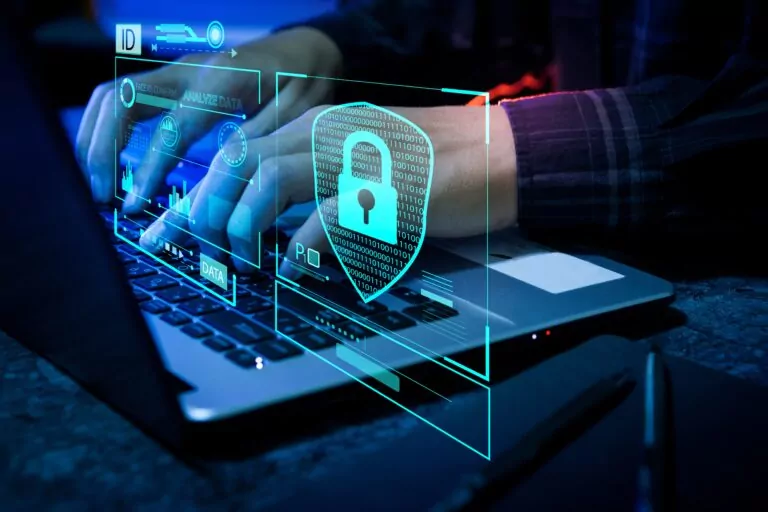Fraud Protection & Identity Theft
Don’t Get Scammed!
These days, there are more ways to connect to other people than ever before. And unfortunately, that means scammers too. Lots of apps and websites that are supposed to make our lives easier can also make it easier for criminals to steal your money or your identity.
We want to help protect you. Below is valuable information about fraud protection and identity theft, along with steps to take should you become a victim.

What are best practices to protect my account?
Keeping your bank account secure is crucial to protect your finances and personal information. Here are 7 best practice tips to enhance the security of your CCCU bank account:
Watch out for fraud calls and texts
There’s been a rise with Zelle Fraud Alert Scams among others. Be careful when you answer your phone or get a text! Scammers are impersonating the fraud departments of financial institutions in order to steal identities and cash.
- NEVER give anybody your account information, passwords, and One-Time Passcode (OTP). The Credit Union will NEVER ask for your account information or online banking login.
- NEVER trust Caller ID. Scammers often use software to “spoof” phone numbers, so your Caller ID may show that it’s the Credit Union calling.
- BE AWARE of Fraud Texts and Calls: If you receive a text message alerting you about suspicious activity on your account, don’t reply to the text message. Contact us through Secure Chat within Online or Mobile Banking or call us directly at 800.347.CCCU (2228).
- The Credit Union will NEVER call you to set up Apple Pay over the phone. This is a popular tactic being used by scammers to target people interested in contactless payments.
If you get a call claiming to be from the Credit Union fraud department or any Credit Union call you weren’t expecting, HANG UP and call the Credit Union back at our main number, 800-347-CCCU (2228). If the call was legitimate, we will direct you to the appropriate person who can help you.
Watch out for romance scams
Are you exploring online dating? Romance scammers are out to steal your cash and identity!
Watch out for Economic Impact (Stimulus) Payment scams!
Since the announcement of the Economic Impact Payment (EIP), fraudsters are out to get your personal and bank information.
How do I protect myself from Online and Telephone Fraud?
Here are seven tips to help you steer clear of fraudsters and stay scam-free.
What are some fraud trends, and how can I avoid them?
Here’s a list compiled for us by John Buzzard, Fraud Specialist for CO-OP Financial Services.
According to a recent Nilson report, global card fraud will reach $43.8 billion this year. While artificial intelligence, machine learning and other security innovations being implemented by financial institutions and credit card companies are helping to reduce fraud on all fronts, among the best weapons in this fight is an informed and vigilant consumer.
Here are this summer’s most prevalent financial scams that have been catching people by surprise – and for you to be watchful for all year long:
What is Identity Theft?
Identity theft happens when someone uses your personal information to steal your money and credit. This type of crime can ruin your credit and affect your ability to get insurance, mortgages, and even a job.
How can I protect myself from Identity Theft?
You can help protect yourself against identity theft with these tips:
- Do not give out personal information such as your account or credit card numbers over the phone unless you’re the one making the call.
- Report lost or stolen checks immediately, properly store cancelled checks, and examine new check orders to verify that no checks are missing.
- Destroy all credit card applications, financial documents, statements, and receipts before discarding them.
- Guard your ATM PIN. Don’t write it down anywhere.
- Make sure your mailbox is secure, and collect mail promptly as it’s delivered. If a locked mailbox isn’t available where you live, consider having bank statements & other important documents delivered to a P.O. box.
- Contact a credit-reporting agency annually to review your credit status and files. If you have minor children, check their credit reports too.
- Never click on links in emails that ask you to “update” or “verify” your account information.
- Never have your Social Security and driver license numbers printed on your checks.
- When shopping online, only buy from secure websites (web addresses should start with “https://” and should have a small lock icon next to the address in the browser window)
- Install good anti-virus software on your computer and keep it updated.
- Use strong passwords for your online banking and shopping accounts.
- Never carry your Social Security or Medicare card with you.
- Keep copies of all of your credit cards in a secure, locked drawer or safe in case your wallet is stolen.
Christian Community Credit Union will never send text messages, instant messages or email members asking them to provide and/or verify their Social Security Number, account number or personal identification information including passwords or Personal ID Number (PIN).
I think I have been a victim of fraud. What should I do?
If you have been a victim of this kind of fraud, or if you have mistakenly supplied confidential information to someone else, please contact us immediately at 800-347-CCCU (2228). We will take steps to protect you.
You should also contact:
- Your local Police Department
- The Social Security Fraud Hotline: 800.269.0271
- The FTC Identity Theft Hotline: 877.IDTHEFT (438.4338)
We have also compiled a list of other resources to help you recover from identity theft.
How can I protect my Debit and Credit Cards from online fraud?
For more information or to get started on any of these deposit services, consult our Ministry Development Banking team.
Call us at 909.495.8346
